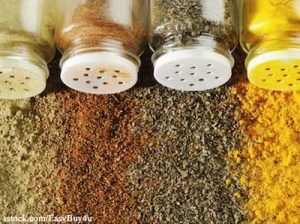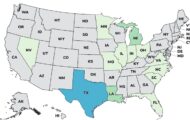When we cook and bake, we are concerned with foods safety. We wash our hands after preparing raw chicken or other meats, wash produce before eating, avoid cross-contamination, and use a food thermometer to check the temperature of meat dishes. But not many people think about spices as a source of foodborne illness.
 The USDA, in a response to increased concerns about the safety of spices we buy, initiated research to discover the prevalence of Salmonella in imported spices. Shipments of imported spices were sampled during the fiscal years 2007 to 2009.
The USDA, in a response to increased concerns about the safety of spices we buy, initiated research to discover the prevalence of Salmonella in imported spices. Shipments of imported spices were sampled during the fiscal years 2007 to 2009.
Scientists found a wide diversity of Salmonella strains in these spices. About 8.3% of the samples contained antibiotic-resistant Salmonella strains. The researchers also found that a larger proportion of spice shipments derived from fruits and seeds or leaves of plants were contaminated than those derived from the bark or flower of spice plants. In addition, there were more samples of ground/cracked capsicum and coriander that were contaminated than shipments of their whole spice counterparts.
And this is troubling: some shipments that were reportedly subjected to pathogen reduction treatments before import were found to be contaminated. Contaminated spices generally have many more types of Salmonella bacteria than found in contaminated meat.
The spices from Mexico and India had the highest share of contaminated product. About 14% of the samples from Mexico were contaminated with Salmonella; India’s contaminated spices accounted for about 9%. Since about 25% of the spices, oils, and food colorings used in this country are imported from India, that is worrisome.
Because spices have such a long shelf life, any outbreaks of foodborne illness caused by these products is difficult to trace. Salmonella can survive indefinitely on these products. There have been foodborne illness outbreaks linked to spices, and recalls of products for contamination. In December 2011, there was several recalls of organic celery seeds for Salmonella, and in January 2012, Jones’ Seasoning recalled their Mock Salt for Salmonella.




